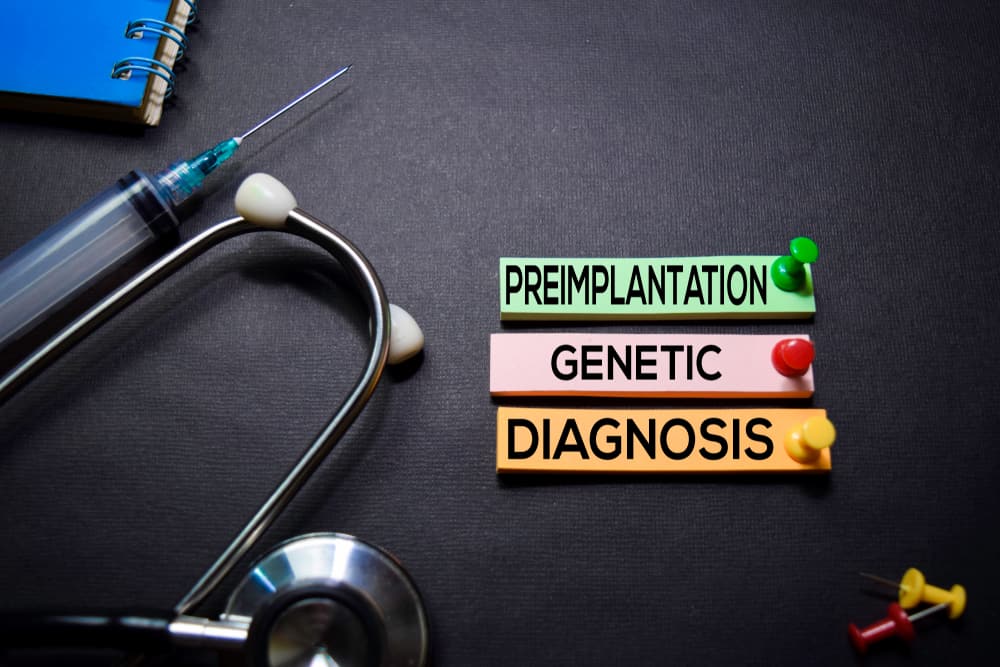
The VFC Center at Vejthani Hospital offers preimplantation genetic diagnosis for those with familial medical histories of certain diseases and conditions, such as cystic fibrosis and sickle cell anemia. Having this diagnosis can inform families about the possibility of conceiving a child who will require medical care throughout their life.
For those who want to start a family, their primary concern is having a healthy baby. Unfortunately, having a familial medical history of a genetic disease or condition often casts a cloud over what should always be a happy occasion.
Nowadays, through genetic testing, a couple can find out if they have a familial medical history that poses a significant danger of passing along a disease. Having a preimplantation genetic diagnosis (PGD) as an additional step during IVF treatment can remove any risk of passing along genetic diseases to your baby too.
Some families also turn to PGD to find a bone marrow donor for a family member that needs the stem cells that bone marrow provides. The child they have through IVF, if verified by PGD, can potentially donate stem cells to the family member.
How Is a Preimplantation Genetic Diagnosis Performed?
PGD is available for almost any genetically transmissible disease or condition. There is no single PGD that fits everyone, however. Every PGD must be designed to fit the biological makeup of the parents. It can take up to several months to develop the test.
PGD is a laboratory procedure, and it’s regularly performed as part of the IVF process. The test is often developed before the couple embarks on a round of IVF, so PGD can be performed once the woman is on going for oocytes retrieval. During IVF, multiple eggs are harvested, and the primitive egg cells are inseminated with a single sperm cell using an intracytoplasmic sperm injection (ICSI).
The embryos that result from the IVF treatment are cultivated until they reach the blastocyst stage, which happens on day five to seven of their cultivation. At this point, ten to fifteen of the embryo’s cells are removed, which doesn’t harm the embryo and results are more accurate compared to one or two cell of cleavage stage embryo day three. The removed cells are analyzed for specific conditions. Embryos that furnish cells unaffected by the specific conditions are transferred back into the woman’s uterus later on.
Two Main Techniques of PGD
Two main techniques are used for PGD, depending on the condition being tested for. Gene amplification is a process that enables multiple copies of the gene that’s causing medical issues. The copies enable comparison with small samples of the patient’s DNA to make a diagnosis. The patient can continue the normal IVF treatment if no matching genes are found in the DNA. This technique is called Polymerase chain reaction (PCR).
Next generation sequencing (NGS) is another technique used for PGD. It allows lab technicians to count the number of chromosomes in an isolated cell. Certain conditions, including Down’s syndrome, cause the production of aneuploid cells. These are human cells that have 45 or 47 chromosomes instead of the usual 46.
An irregular number of chromosomes has been identified as an indicator of a number of genetic disorders. Most cases of aneuploidy will result in miscarriages when carried to term so it’s important to identify them early.
Visit Vejthani Hospital’s VFC Center
For many couples, visiting Vejthani Hospital’s VFC Center represents their best hope of starting a family safely and naturally.
Our VFC Center offers a variety of fertility treatments in addition to a preimplantation genetic diagnosis that all start with a consultation with our experienced fertility doctors. The next step in the process is a complete physical examination of the couple, followed by fertility tests for both partners, semen analysis, and pelvic ultrasound to evaluate uterus and ovaries. Once these preliminaries are concluded, we can suggest a path to follow using our wealth of experience, techniques and treatments that will provide the best chance of successfully conceiving a child.
The VFC Center also offers services that provide viable alternatives to immediate conception, such as surgical sperm retrieval and embryo and egg freezing. These services are available to everyone who want to start a family when they be ready.
Take the first step and schedule a consultation with a fertility doctor at Vejthani Hospital’s VFC Center today.








No Comments
Sorry, the comment form is closed at this time.